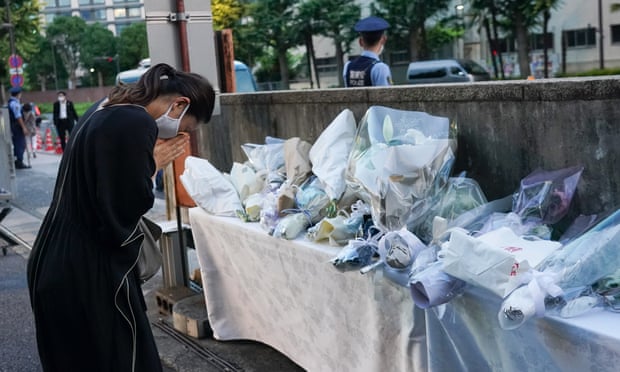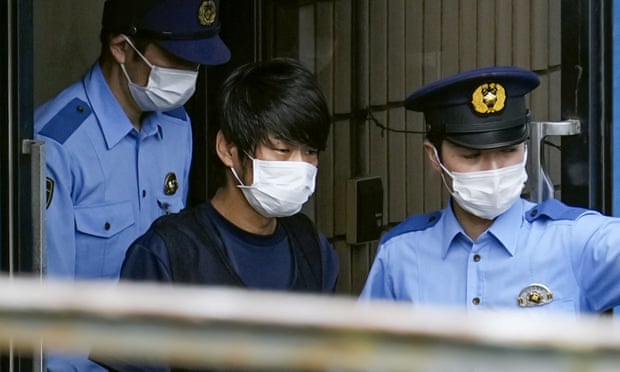Shinzo Abe: Japanese voters back party of former PM amid shooting fallout |
Japan’s ruling party has won a comfortable victory in elections overshadowed by the assassination of the former prime minister, Shinzo Abe.
Exit polls showed that the Liberal Democratic party (LDP), which Abe led until he resigned in 2020, had secured more than half the 125 seats being contested in the 248-seat upper house.
The LDP and its junior coalition partner, Komeito, were projected to win more than 63 seats, according to a Kyodo news agency exit poll. The public broadcaster NHK said the parties would win between 69 and 83 seats.
The coalition needed to secure 55 seats to retain their majority in the upper house – the less powerful chamber in Japan’s parliament.
“It’s significant we were able to pull this election together at a time violence was shaking the foundations of the election,” the prime minister, Fumio Kishida, an Abe protege, said after the exit poll.
The party had expected to perform well before Abe, Japan’s longest-serving prime minister, was shot dead by a gunman as he delivered a campaign speech in the western city of Nara on Friday morning.
While the official result has yet to be declared, experts said Abe’s violent death, at 67, could boost turnout and support for his party.

Kei Sato, the LDP candidate Abe had been campaigning for when he was killed, said: “Former prime minister Abe, who came to support me, was shot in an act of terrorism in the midst of our election campaign.
“But we continued our campaign in the belief that we must not cave in to terrorism or fear it – we must overcome it. I hope to travel to Tokyo tomorrow to tell former Prime Minister Abe himself of this victory,” added Sato, who was projected to win his seat.
Japanese government officials had urged people to vote to demonstrate the country’s refusal to be intimidated by violence, while newspaper editorials blasted Abe’s killing, carried out with a homemade shotgun, as an attack on democracy.
“We must never allow violence to suppress speech during elections, which are the foundation of democracy,” Kishida, said during a campaign speech on the eve of the vote.
The run-up to the election had been dominated by rising prices, energy shortages and security threats, including LDP plans to double defence spending to at least 2% of GDP in the face of a nuclear-armed North Korea and more assertive China.
The vote was being seen as a referendum on Kishida’s first 10 months in office; control of the government, which is decided in the lower house, was not at stake.
The poll, though, was overshadowed by Abe’s death, and growing questions over his security arrangements and the motives of his alleged killer.

The suspect, Tetsuya Yamagami, has told police that he had originally intended to target the leader of a religious group to which his mother had made a “huge donation” that led to her bankruptcy. He reportedly admitted he had also wanted to kill Abe, whom he accused of having ties to the group.
Japanese…
Read More: Shinzo Abe: Japanese voters back party of former PM amid shooting fallout |
